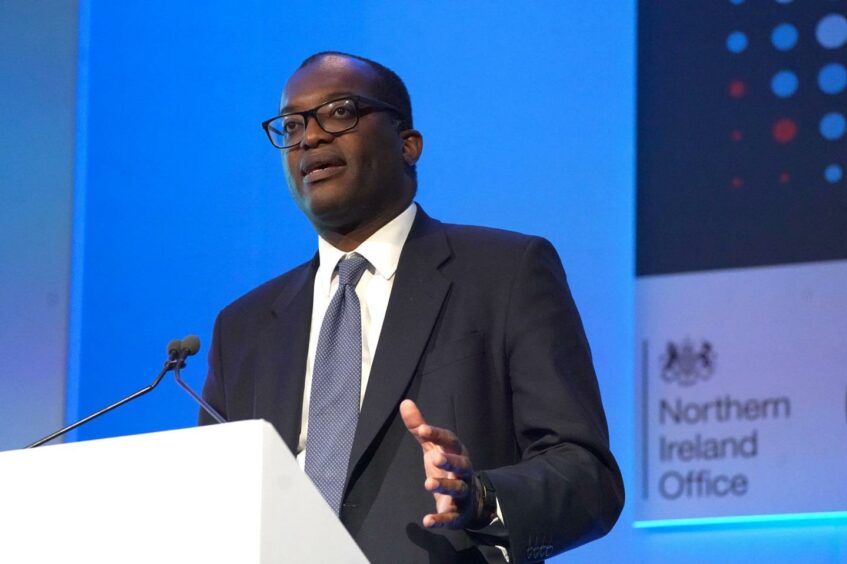
The UK government plans to offer fixed-price contracts to existing renewable-energy producers as a way to blunt the impact of soaring power costs on households this winter, according to people familiar with the discussions.
Business Secretary Kwasi Kwarteng is working to extend so-called contracts for difference to generators to replace more lucrative subsidies in an attempt to cap profits and avoid imposing a windfall tax, said the people, who asked not to be identified because the discussions are private.
Britain’s next prime minister faces immediate pressure to help people cope with jarring increases in energy tariffs that could devastate households and businesses as the cold months approach. Foreign Secretary Liz Truss, the front-runner in the Conservative Party’s leadership race, has vowed not to expand the windfall tax on oil and gas producers implemented by rival Rishi Sunak when he was Chancellor of the Exchequer.
A spokesperson for the Department for Business, Energy and Industrial Strategy said it’s making “appropriate preparations” to ensure that any more cost of living support can be delivered when the new prime minister is in place next week.
The contracts are the UK’s primary tool for expanding renewable power, and are mostly used for offshore wind farms. Companies agree to a set price over a 15-year period. If the market price for power is below the contract price, then the system works as a subsidy, paying the generator the difference.
But when market prices are higher than contracts, as they are now, the producer pays the government the difference, with the money allocated to energy retailers, potentially helping to lower bills. With UK power prices more than tripling in the last year, wind farms have paid back more than £360 million ($419 million), according to data from Low Carbon Contracts Company Ltd.
While those wind farms have their profits effectively capped, other producers are free to sell power into a market where plants that burn natural gas set the price. That means generators such as nuclear plants, Drax Plc’s biomass-burning power station and even other wind farms can make huge profits.
Some of those projects even get extra money through renewable energy certificates, which pay a subsidy on top of market prices.
Recommended for you
